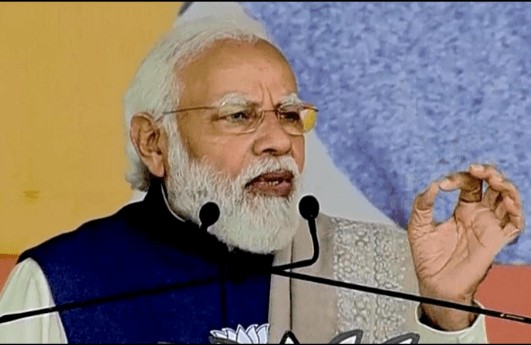Prime Minister Modi’s recent announcement that India will be joining the global fight against single-use plastic has been met with both excitement and optimism. India, the second most populous country in the world, is home to 1.3 billion people and it is estimated that over 15 million tonnes of plastic waste is generated in the country every year.
What is Single-Use Plastic and Its Impacts?
Single-Use Plastic is a type of plastic that is designed to be used only once before it is thrown away. This type of plastic is used in many everyday items such as food packaging, water bottles, straws, and shopping bags. While single-use plastic is convenient, it has a significant environmental impact. The production of single-use plastic requires a large amount of energy, water and resources, and once used, it often ends up in landfills or the ocean. These plastics can take hundreds of years to decompose, releasing toxic chemicals into the environment.
Additionally, single-use plastic is responsible for the deaths of millions of animals each year, due to ingestion or entanglement. PM Modi has taken a stand against single-use plastic and is encouraging India to join in the global movement to reduce its use. He is working to educate citizens on the dangers of single-use plastic and promote the use of more sustainable alternatives. By making this commitment, India is taking a crucial step towards a greener future.
Modi’s Stand on Single-Use Plastic
Prime Minister Narendra Modi recently addressed the nation in his monthly radio show and spoke extensively about the need to reduce the use of single-use plastic in India. He called upon citizens to take this initiative seriously and contribute to India’s journey to become free of single-use plastic. PM Modi emphasized on the need to come up with effective alternatives to single-use plastic and said that the government is actively looking into the matter.
He also said that the government is working on producing biodegradable and environment-friendly alternatives to single-use plastic. PM Modi’s stand on single-use plastic reflects his commitment to the environment and his dedication to reduce the carbon footprint of India. He has taken a stand against the increased usage of single-use plastic and set an example for other nations to follow. He has urged citizens to take the initiative and come up with creative solutions to replace single-use plastic.
The Prime Minister’s efforts to reduce the use of single-use plastic are commendable. He has set a challenging example for the nation to follow and it is heartening to see the citizens taking up the challenge. The government has promised to come up with effective alternatives to single-use plastic and it is hoped that India will soon become free of single-use plastic. It is reassuring to see the Prime Minister taking a strong stand on such an important issue and his efforts will no doubt go a long way in protecting the environment.
Plans Undertaken by Government to Control the Use of Single-Use Plastic
The Indian Government has taken numerous measures to reduce single-use plastic in the country. The Prime Minister of India, Shri Narendra Modi, had announced in his Independence Day speech that India should become free of single-use plastic by 2022. To achieve this goal, various plans have been undertaken by the government, including the imposition of a ban on certain single-use plastics, such as carry bags, cutlery, and straws. Furthermore, the government has also taken initiatives to promote the use of alternative materials to single-use plastics, such as paper and cloth bags, glass and steel cutlery, and biodegradable straws.
Additionally, the government has also been pushing for the use of more sustainable materials such as jute and bamboo for packaging, as well as encouraging the use of recycled and biodegradable plastics. All these measures are being implemented to reduce the amount of single-use plastic in India, and ensure a healthier and greener future for the nation.
Initiatives by Corporates to Reduce Single-Use Plastic
In recent years, the Indian government, led by Prime Minister Narendra Modi, has taken steps towards reducing the country’s reliance on single-use plastic. The government has launched several campaigns and initiatives to promote the use of sustainable and eco-friendly alternatives to single-use plastics. These initiatives have been supported by many big corporations, such as Amazon, Flipkart, Reliance, and Adani, who have committed to reducing their use of single-use plastic.
The companies have agreed to replace single-use plastic bags with paper bags and jute bags, and have also started offering customers the option to use their own reusable bags instead. They have also started using biodegradable packaging materials such as paper, cardboard, and cloth bags, as well as paper straws, bamboo cutlery, and bamboo toothbrushes.
In addition, many companies are helping to spread awareness about the dangers of single-use plastics and the importance of reducing their use. They are also encouraging their customers to bring their own shopping bags and containers for their purchases.
At the same time, the government has also taken steps to reduce single-use plastic waste by introducing regulations and policies that discourage their use. These measures include banning single-use plastics in certain areas, imposing fees on the use of single-use plastic bags, and encouraging people to responsibly dispose of plastic waste.
Role of Public in Reducing Single-Use Plastic
The role of the public in reducing single-use plastic is incredibly important. Prime Minister Modi recently announced his vision of India becoming free of single-use plastics by 2022. To achieve this goal, the public must take an active role in reducing their use of single-use plastics. One way to do this is by opting for reusable alternatives where possible.
This includes using reusable bags when grocery shopping, investing in reusable coffee cups, and bringing reusable containers for food and drink. When purchasing items, the public should also opt for items that are packaged in materials that are recyclable or compostable.
It is also helpful to reduce consumption of items that are packaged in single-use plastic. This includes avoiding items that come in plastic packaging such as pre-packaged snacks, bottled water and single-use plastic bottles. Additionally, the public can support businesses that are taking proactive steps to reduce their use of single-use plastics. This could include patronizing restaurants and stores that are making an effort to reduce their use of plastic packaging and encouraging others to do the same.
The public can also help to educate their family and friends on the importance of reducing single-use plastic. This could include talking to young children about the importance of reducing plastic waste, as well as encouraging friends and family to make small changes in their daily lives to reduce their use of single-use plastic. Finally, the public can get involved in local initiatives to clean up single-use plastic waste. This could include volunteering to pick up plastic waste in local parks and beaches and joining community clean-up days.
Conclusion
Prime Minister Narendra Modi’s announcement of India joining the single use plastic ban is a welcome development that could potentially benefit the environment in India greatly. It is a bold move that could potentially set a model for the rest of the world and lead the way to a more sustainable future. India’s commitment to this ban is a step in the right direction and we hope to see the positive effects of this decision in the near future.





















Comments